News
-
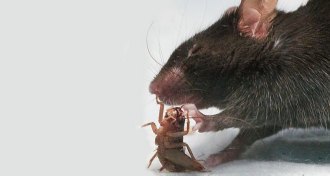 Neuroscience
NeuroscienceHow mice use their brain to hunt
Messages from the brain’s amygdala help mice chase and kill prey.
-
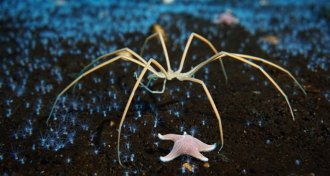 Animals
AnimalsIt takes guts for a sea spider to pump blood
Most sea spiders have hearts, but what really gets their blood flowing are gut contractions.
By Susan Milius -
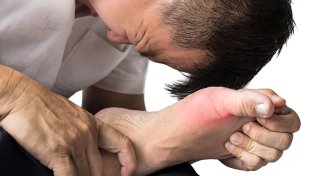 Neuroscience
NeurosciencePain promoter also acts as pain reliever
A pain-sensing protein also regulates activity of pain-relieving opioids.
-
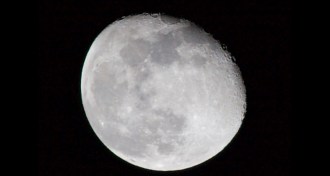 Planetary Science
Planetary ScienceMany tiny moons came together to form moon, simulations suggest
Earth’s moon formed from mini-moons generated by a series of medium to large impacts, rather than from one colossal collision, researchers propose
-
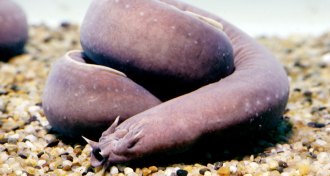 Animals
AnimalsUnusually loose skin helps hagfish survive shark attacks
Hagfish skin that easily slips and slides can be a lifesaver in crises such as shark attacks.
By Susan Milius -
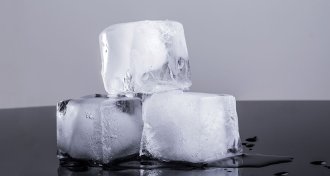 Chemistry
ChemistryDebate heats up over claims that hot water sometimes freezes faster than cold
A team of chemists has a new explanation for the Mpemba effect, while other scientists debate if it is even real.
-
 Neuroscience
NeuroscienceFacial-processing area of brain keeps growing throughout childhood
Contrary to scientists’ expectations, a facial-processing area of the brain grows new tissue during childhood, an MRI study suggests.
-
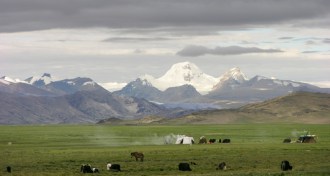 Archaeology
ArchaeologyHunter-gatherers were possibly first to call Tibetan Plateau home
Hunter-gatherers may have been Asia’s first year-round, high-altitude settlers.
By Bruce Bower -
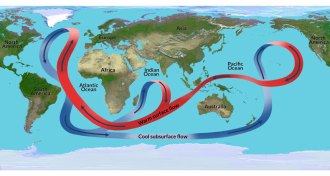 Climate
ClimateWarming could disrupt Atlantic Ocean current
The Atlantic current that keeps northwestern Europe warm may be less stable under future climate change than previously thought, revised simulations show.
-
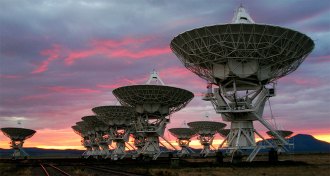 Astronomy
AstronomyGotcha: Fast radio burst’s home nabbed
For the first time, astronomers pinpoint a precise position on the sky for a fast radio burst, revealing that the outburst originated in a galaxy about 2.5 billion light-years away.
-
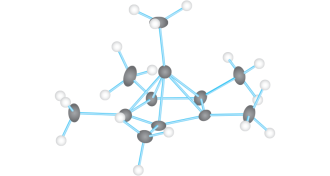 Chemistry
ChemistryCarbon can exceed four-bond limit
Scientists confirm structure of unusual molecule in which carbon bonds to six other carbon atoms.
-
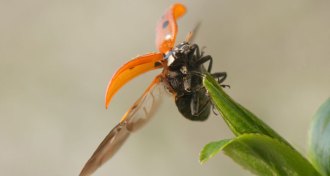 Ecosystems
EcosystemsLong-ignored, high-flying arthropods could make up largest land migrations
Forget birds. 3.5 trillion insects, spiders and mites a year fly over the southern United Kingdom.
By Susan Milius